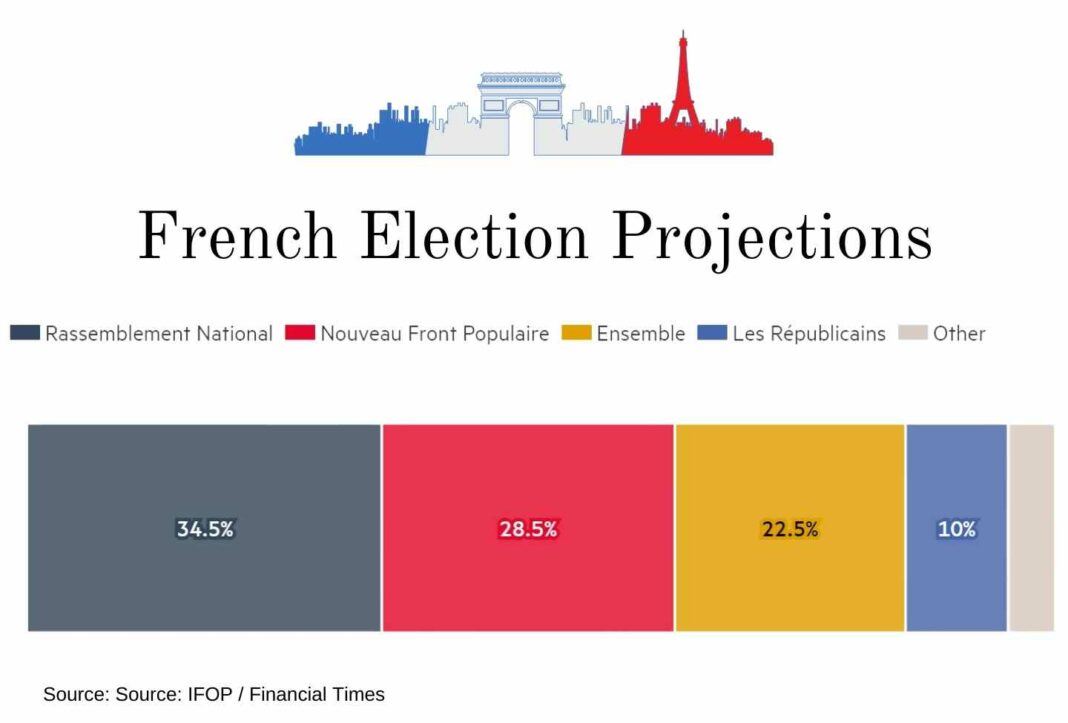An IMGW News Report
France’s far-right Rassemblement National (RN), led by Marine Le Pen, has surged ahead in the initial round of parliamentary elections, placing President Emmanuel Macron’s centrist alliance unexpectedly in third place. According to projections by Ifop, RN secured 34.5% of the vote, followed by the left-wing Nouveau Front Populaire alliance at 28.5% and Macron’s Ensemble alliance at 22.5%.







